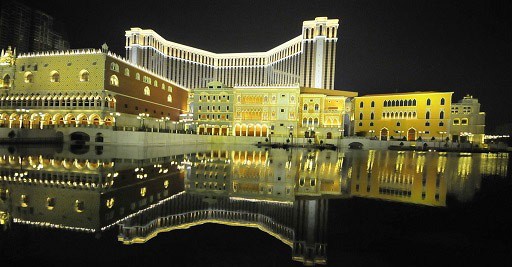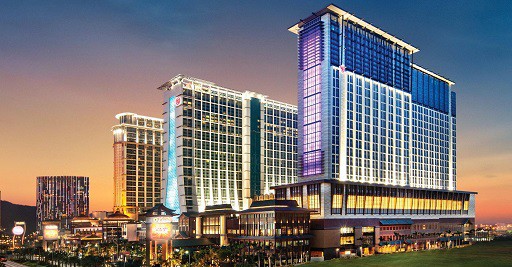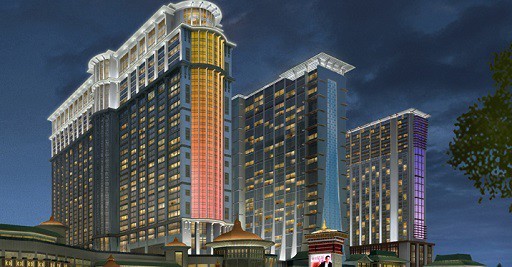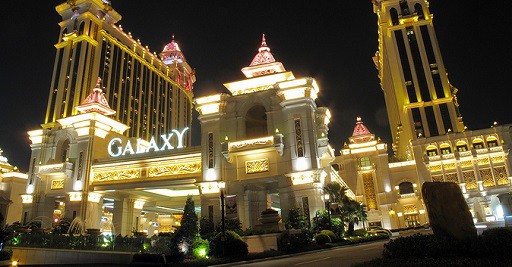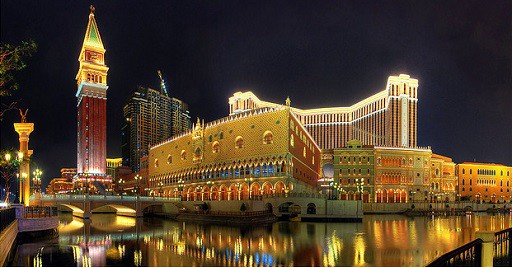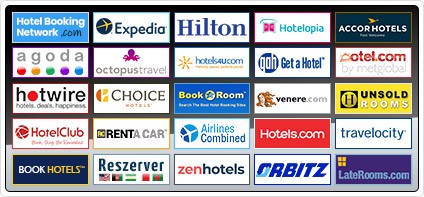Helpful Travel Tips To Book A Hotel
Whether you're travelling alone or with your family in tow you're often in unfamiliar territory. Be a smart traveler and study up on some of your destination's norms and conventions. A bit of working local education will go a long way to make your journey more safe and enjoyable. You may even avoid personal embarrassment or humiliation. Or worse yet, if you don't know the local or regional customs you could insult someone unintentionally and not even realize what you have done or why you are being treated poorly by your hosts. We've scrubbed the web for the best and most helpful travel tips and ideas and assembled them with a smattering of our own to help you make the most of your holiday or vacation away from home!
Tips on Tipping
Who do you tip? When? How much?
The practice of tipping is meant as a form of thank-you for services rendered, or beforehand as a subtle bribe for special treatment.
Tipping in Macau need not be considered mandatory or automatic. Too often, tips are taken for granted or expected regardless of the quality of service. Tipping should be done at your discretion and as a reward for good or superlative service.
Below are some tipping suggestions for travelers. At nearly every step of the traveling process, there are professionals waiting to "lighten your load" or provide assistance. So remember to carry a lot of change and small bills for tips.
Taxi/Limo Drivers: A $2 to $3 tip is usually satisfactory; more if he helps you with your bags and/or takes special steps to get you to your destination on time.
Porters: A standard tip for airport and train porters is $1 per bag; more if your luggage is very heavy.
Hotel Bellman: Again, $1 per bag is standard. Tip when he shows you to your room and again if he assists you upon checkout. Tip more if he provides any additional service. Note: A $5 tip upon arrival can usually guarantee you special attention should you require it.
Doorman: Typically, a $1 tip for hailing a taxi is appropriate. However, you may want to tip more for special service, such as carrying your bags or shielding you with an umbrella.
Concierge: Tip for special services such as making restaurant or theater reservations, arranging sightseeing tours, etc. The amount of the tip is generally dependent on the type and complexity of service(s) provided-$2 to $10 is a standard range. You may elect to tip for each service, or in one sum upon departure. If you want to ensure special treatment from the concierge, you might consider a $10-$20 tip upon arrival.
Hotel Maid: Maids are often forgotten about when it comes to tipping because they typically do their work when you are not around. For stays of more than one night, $1 per night is standard. The tip should be left in the hotel room in a marked envelope.
Parking Attendants: Tip $1 to $2 when your car is delivered. Waiters: 15-20% of your pre-tax check is considered standard. The same applies for room service waiters. Some restaurants will automatically add a 15% gratuity to your bill, especially for large parties-look for it before tipping. If the 15% is added, you need only tip up to another 5% for superlative service.
Cloakroom Attendants: If there is a charge for the service, a tip is not necessary. However, if there is no charge, or extra care is taken with your coat and/or bags, a $1 to $2 tip is appropriate.
Tour Guides/Charter Bus Drivers: If a tip is not automatically included, tip $1 for a half-day tour, $2 for full-day tour, and anywhere from $5 to $10 for a week-long tour. Tip a private guide more.
These are some of the people you are most likely to encounter while traveling in the U.S. Undoubtedly there will be others. If there is one standard rule in tipping it is this: If someone renders special service to you along the way, show your appreciation with a tip.
Travel Scams
You Don't Get Something for Nothing
Beware of travel companies that misrepresent information about the bookings and transportation costs. For example, a company that offers an unbelievably low airfare may make up the loss in another way such as overpriced hotel accomodations. In most cases, one should assume that "If it sounds too good to be true, it probably is."
Don't be taken by solicitations by postcard, letter, or phone claiming you've won a free trip or can get discounts on hotels and airfares. These offers usually don't disclose the hidden fees involved, for example, deposits, surcharges, excessive handling fees or taxes.
Some travel scams require you to purchase a product to get a trip that is "free" or "two-for-one." You'll end up paying for the "free trip" or more for the product than the trip is worth, and the two-for-one deal might be more expensive than if you had arranged a trip yourself by watching airfare deals.
Be wary of travel offers which ask you to redeem vouchers or certificates from out-of-state companies. Their offers are usually valid only for a limited time and on a space-available basis. The hotels are often budget rooms and very uncomfortable. The company charges you for the trip in advance, but will the company still be in business when you're ready to take the trip?
Check the reputation of any travel service you use, especially travel clubs offering discounts on their services in exchange for an annual fee. Contact your state or local consumer protection agency or the Better Business Bureau.
Request copies of a travel club's or agent's brochures and contracts before purchasing your ticket. Don't rely on oral promises. Find out about cancellation policies and never sign contracts that have blank or incomplete spaces.
Never give out your credit card number to a club or company with which you're unfamiliar or which requires you to call 900 numbers for information.
Don't feel pressured by requests for an immediate decision or a statement that the offer is only good "if you act now." Don't deal with companies that request payment in advance or that don't have escrow accounts where your deposit is held.
Research cut-rate offers, especially when dealing with travel consolidators who might not be able to provide your tickets until close to your departure date.
You can protect yourself by using a credit card to purchase travel services. If you don't get what you paid for, contact the credit card issuer and you might be able to get the charges reversed. Be aware that you have 60 days to dispute a charge.
Pre-Travel Preparations
When going away, make sure you cancel all newspapers, pay bills before you go, and get someone to look after your house - give them the spare key, and ask them to clear your mail. Also, if possible, park a car in your driveway if you are taking your car with you.
When taking a purse or wallet, only take two credit cards and Driver's ID and only necessary business cards. Leave ALL other credit cards at home and always write down the credit card numbers you're taking with you and place them elsewhere in your luggage in case your purse or wallet is stolen. Also write down important phone numbers of people to contact in case of any emergency (doctor, dentist, pharmacist, credit card companies, etc.) and put them elsewhere in your luggage. They can be a life saver!
If you're going to a popular tourist attraction, buy your film at home!
If you take trips that require any special wardrobe or equipment, keep it all in a duffle bag so that when the time comes, it is already packed and ready to go. For example, I have a ski bag that includes ski sweaters, hat & gloves, ski socks, thermals, goggles, etc. It saves a lot of mornings of buying equipment at the mountain at inflated prices.
Several days before leaving, make up a checklist of everything you need to take. Start with morning things (medications, shower necessities, etc.) and mentally go through and write down everything you will need for a day. Don't forget things like a clock, camera, laundry soap, etc. You can keep this list on your computer and pull it up whenever you need it.
Always carry lots of quarters and dimes. A used film canister works very well. You never know when you will need to catch the bus or train or make a pay phone phonecall.
Make sure your will and personal papers are all in order. If something were to happen to you while traveling, it's good for your family and heirs to know where your will is, where your insurance papers are kept, where the safe deposit box keys are, etc.
Eat yogurt two weeks before you leave - this builds up a "friendly" bacteria in your system and you can then tolerate more things. Drink bottled water and no ice. (Better hotels have their own ice making that uses purified water). In third world countries only eat cooked food or fruit that can be peeled (bananas or oranges) - raw food (salads, etc.) may not have been cleaned properly.
Create a list of all your travellers' check numbers. Keep this entirely separate from the actual documents so that if they are lost/stolen you will have immediate reference to the correct information.
Always carry wet naps in your bags, and tissue paper.
Have a photocopy made of your passport ID page and airline tickets before you embark on your trip.
Bring lots of single dollar bills for tips during endless airport transfers, hotels, and courtesy busses.
Before leaving home photocopy all your credit cards, ID, and travel documents and leave a copy with your housesitter or someone reliable.
What to Do When the Airlines Lose Something You Need
What to Do When the Airlines Lose Something You Need Right Away Although airlines handle millions of suitcases every day without a mishap, the system isn't without its faults. Although the chances of having your bags misdirected or lost are small, if you travel a lot for business, sooner or later you may have to deal with this irksome situation.
So what do you do when you've got an important presentation in the morning and your luggage never made it to the baggage carousel? For starters, don't panic. Most luggage is only delayed, not lost permanently. File a missing-luggage form--even if the airline agent insists that your bags will turn up on the next flight. Don't leave without a copy of the report and the toll-free airline telephone number to their claims department.
Ask about the airline's immediate reimbursement policy. Airlines usually have leisure travelers buy a new wardrobe at their own expense and then file for reimbursement. This process can take weeks or months. However, if you need to make a major purchase immediately, the airline may advance you some cash. For example, if you arrive at night, and the suitcase containing the $500 suit you planned to wear the next day for an important presentation doesn't show up, the airline may give you money to replace it in time for your meeting.
If your bag is missing or significantly delayed, you'll probably need to buy more than just a suit. Many airlines offer a daily stipend in the neighborhood of $25-$50 to buy things like toiletries. The airline may also have toiletry kits to give out--be sure to ask, because not all airline officials will be forthcoming about freebies.
Remember, an ounce of prevention is worth a pound of cure. The best way to lessen the chances your valuables will be lost is to carry them with you. Although many airlines are tightening carry-on restrictions, many airlines will still allow business passengers to carry two items, especially if they do not check any other bags.
If you do check baggage, be sure to check in as early as possible to make sure both you and your luggage make the flight. Try to schedule a reasonable amount of time--at least 45 minutes --between connecting flights.
Consider buying additional insurance--without it, airlines are only liable for the first $1,250 worth of lost items on domestic flights (and even less internationally). Additional coverage typically costs $1 for every $100 in value declared over $1,250.
Traveling With a Laptop
These days, being a business traveler means lugging around a lot of expensive equipment, including cell phones, electronic datebooks, laptop computers, and more. Here's a few suggestions on how to keep one of your most valuable business-related items safe and secure.
To help keep thieves at bay, it's always smart to keep your laptop in a case that doesn't immediately identify it as a computer. The same advice holds true for cameras, VCRs, and other expensive equipment you might take on your business travels.
When entering a metal detector at the airport, do not put your laptop on the conveyor belt to be x-rayed. Rather, ask the security guard to conduct a manual search of the computer and any other electronic equipment you may have with you.
Once on the airplane, keep your laptop nearby. Don't store computers in overhead bins because they can get thrown around during the flight. So when you're not furiously typing away on a business proposal--or playing solitaire--keep your computer underneath the seat in front of you.
Once on the airplane, keep your laptop nearby. Don't store computers in overhead bins because they can get thrown around during the flight. So when you're not furiously typing away on a business proposal--or playing solitaire--keep your computer underneath the seat in front of you.
Always travel with extra batteries and call the hotel ahead of time to make sure it has modems and data ports available in guest rooms or in the hotel business center. Also, if you plan on doing a lot of work in your room, pack an extension cord so you can use the laptop from your preferred spot, regardless of where the outlet is located. In a pinch, move the furniture to suit your needs.
Keep in mind that outside of North America, you may encounter phone jacks that are incompatible with your modem. Be sure to check out what kinds of adapters you may need before you go.
More Gift-Giving Dos and Taboos
Gift giving, hard enough in a familiar culture, can be daunting when traveling on business. Keep in mind that in many cultures, a lavish gift will embarrass the recipient. Also remember that in the United States, the Internal Revenue Service will not allow you to deduct more than $25 per gift as a business expense.
It is also important to consider the local culture, as Americans are notorious for accidentally offending foreign hosts. The following tips should help you get your business relationships off on the right foot while traveling overseas.
To the Chinese, clocks symbolize the passage of time, and, by extension, death. As Chinese gift giving etiquette, then, timepieces are sometimes seen as a morbid gift.
Because the Chinese language is difficult to type, the Chinese often write by hand, and pens make a welcome gift. As in Japan, two is a lucky number, and gifts should be presented with both hands.
In many Asian countries, white is the color of mourning, and gifts in this color should be avoided. Red and yellow are considered to be auspicious colors.
While a bottle of wine would be a welcome gift in many countries, such a gift should be avoided in Muslim countries, which have strict religious prohibitions against alcohol.
Crystal, linen, and leather goods are all appreciated in Arab countries--just make sure the leather isn't pigskin!
Another thing to keep in mind in Muslim countries is that gifts should be presented with the right hand only--the left is considered unclean.
If you are invited to someone's home, flowers for the host (followed by a thank-you note the next day) are usually appreciated the world over.
However, in much of Europe, chrysanthemums are associated with funerals, and red flowers have a strong romantic connotation. These should both be avoided. In Austria and Germany, even numbers of flowers are considered unlucky, as is the number 13. (It might be safer to offer candy instead!)
Using Hotel Telecommunications Facilities
While most hotels appreciate their professional guests, not all of them make it easy or inexpensive to telecommute from their rooms. The following tips can help save you money--and keep your blood pressure down--when using phone and data lines away from home.
If your hotel has a dedicated business floor, make every effort to stay there as these rooms are set up with the business traveler in mind. These rooms are more likely to offer dual telephone/modem lines, fax machines, and free local calling than other rooms. You are also less likely to have punk rockers or screaming children for neighbors.
Hotels often charge guests high service fees for making long-distance calls from their rooms. However, in the United States, hotels are required to provide a connection to any long-distance company's access number for the same charge as a local call. So use your calling card and save money by placing your calls through your own long-distance carrier. Or, just go downstairs and use a lobby pay phone.
Hotels usually charge hefty fees to use their fax machine. If you need to send or receive a fax and it's impossible to do so from your room, a cheaper option might be to use one at a nearby store or business center.
Remember that many parts of the world--including most of Europe--use a different voltage system. This means that you'll need adapters for anything you plan to plug into the wall, including your laptop. Also, some European countries (notably Germany and Austria) have noise on their telecommunications lines called "tax."
This noise, used to monitor rates of usage, can be very disruptive to modem communications. Consider buying a filter.
Tips to Maximize Your Frequent-Flyer Rewards
Most airlines offer some sort of reward program to their frequent flyers.
Some programs reward travelers based on the number of flights taken in a 12-month period while others reward frequent flyers based on the number of miles traveled. Frequent work-related travel can really pay off with free flight coupons, pre-boarding privileges, and upgrades. These benefits become yours to use as you please, whether you use your frequent-flyer miles to visit the Italian Riviera or the in-laws.
Here are some tips that will help you maximize your frequent-flyer benefits:
Focus on one frequent-flyer program If you are not already a member of a frequent-flyer program, there's no time like the present to sign up.
If you belong to one or more programs, try to concentrate on one. Focusing your energy into one program will yield considerably greater perks than accumulating miles all over the place. While new services are popping up to consolidate and trade miles, it is still faster, easier, and simpler to choose one program and milk it for all it's worth.
Collect miles aggressively. Read your frequent-flyer program's newsletters, sign up for the airline's newsletters, and check the Web sites of both the program and airline for special offers. You can also collect extra miles through your frequent-flyer program's partners. Car-rental agencies, hotels, long-distance companies, and other retail operations are often eager to help you accumulate more miles--as long as you are willing to try their products and services. Use these specials to your advantage--but before signing up for a special offer, make sure the benefits outweigh the costs.
Get a credit card linked to your program. Earn miles for the credit-card purchases you're making anyway! Find out if your frequent-flyer program offers a credit card that gives you free miles for the dollar amounts you charge. Many of these cards have annual fees, but the fees pay for themselves if you use the card strategically.
If you have yet to join a frequent-flyer program, be sure to check out the fees and benefits of each card and the program it is linked to. Since credit cards are offered through various banks and have different interest rates, annual fees, and mileage accrual programs, choose and use the card wisely.
Keep track of your miles. Upgrades, flight coupons, and elite status depend on your mileage accrual throughout a 12-month period. Make it a personal goal to stay on top of programs and special offers run by your frequent-flyer program and its affiliates. Many programs offer e-statements, which can be accessed through the Internet, making your account available to you wherever you are.
Whether you use electronic statements or good old-fashioned paper ones, be sure to save your receipts and statements and check them against your own records. Keep track of your mileage and contact your program if there are any discrepancies. Monitor expiration dates. Be sure to use your miles before they expire. If they are close to expiring, plan that trip! Changing the dates will cost a nominal fee, but it's better than losing the free flight.
Also, if you are within a few thousand miles of reaching elite status towards the end of the year, it may be to your advantage to take an extra trip just to rack up a few more miles. Special
boarding privileges and free upgrades are granted to elite, premier, and platinum members.
Claim your rewards. To avoid losing your hard-flown miles, check your mileage statement and try to redeem your miles for travel awards before they expire. Remember, travel awards are not the same thing as tickets. You usually have a year to turn in your travel awards for a ticket to a specific destination. Save your frequent-flyer numbers .
Remember to enter your frequent-flyer numbers into your Travelocity travel profile along with your other travel preferences. Your account number will automatically be sent to the airline whenever you purchase a ticket.
When you fly, double-check that your frequent-flyer account number appears on your boarding passes so that your mileage will be credited to your account promptly.
One last note about mileage: Don't ever try to buy or sell frequent-flyer miles. If you're caught, you could have all the miles in your account revoked--even legitimate ones.
Staying on top of your program and your mileage will pay off, especially if you travel frequently for business. Elite, premier, or platinum status awaits--as do those coveted flight coupons.
So, get out there and rack 'em up!
Staying Sane While Traveling
Sooner or later, just about every frequent traveler begins to tire of life on the road. No matter how adventurous your spirit, loneliness, airplane food, and general disorientation have probably made you a little blue on at least one occasion. While this is normal, the stress of being away from home doesn't have to overwhelm you. The following tips can help you stay happier and healthier on your next business trip.
Paying attention to your diet--whether you have a tendency to overeat or skip meals while traveling, can make you feel a lot healthier and happier. One healthy hint is to call ahead and order the vegetarian or low-fat meal on the plane, even if you're a meat-eater.
These meals are often healthier (and tastier) than the standard meals. If the hustle and bustle of air travel gets you down, try stopping in at the airport chapel. You don't need to claim any religious affiliation, and you may find the quiet, reflective atmosphere soothing.
Remember that attitude is everything. When you're alone in your hotel room, you may find yourself missing loved ones at home. If this happens, try to make the best of the fact that you're alone: Read a novel, take a long bath, indulge your secret love of Gilligan's Island reruns.
Do any of those things you never seem to find the time for when you're at home. Make your hotel room as homey as possible. Stave off homesickness by bringing along photos, candles, or mementos of home.
One of the best ways to combat stress is to make sure you get enough sleep. This can be hard on the road, especially if you have crossed time zones.Bring earplugs and eye shades. Go easy on the caffeine. Alcohol, too, can disrupt sleep patterns and should be consumed moderately, if at all. Some travelers report that the hormone melatonin helps them sleep better. Exercise can also combat stress.
Many hotels either have their own exercise rooms, or can provide a temporary membership to a nearby health club. Be sure to ask if your hotel has any such arrangement.
Treat your business trip as much like a vacation as possible. Make time for something you would normally save for pleasure travel, like a fancy dinner, or an afternoon at a museum. Or treat yourself to a night in your hotel's best room. Even if you have to pay for it out of your own pocket, treating yourself like a king or queen for a night might just give you the lift you need to get through another night away from home.
Making the Most of Your Time in the Airport
With flight delays rippling across the nation, many business travelers themselves find stranded in airports with work that needs to get done. For every minute a flight is delayed, the pile of work left waiting back at the office can seem to grow commensurately.
Surprisingly, in the midst of all the airport hustle and bustle are several convenient possibilities for those who need to engage in business-related activities.
Here are some tips on how to take advantage of airport services to get your work done in the most efficient manner:
If you're tired of trying to plug your laptop into a public payphone, look for one of the many Aerzone Business Centers that are popping up in airports all over the world. Formerly known as Laptop Lane, these centers contain virtually everything a business traveler needs to work in a quick, efficient, and productive manner.
Here, you can check your e-mail, send a fax, make a phone call, and much more. Features include T-1 Internet connections, faxes, phones, copiers, printers, and support staff.
Some even have meeting rooms available and facilities for Web conferencing. You pay a fee for the use of the office (usually $5 for the first minute and $0.65 for each additional minute), so it helps to be organized.
All calls in the U.S. are free.
Similar to the Aerzone Centers, but with extra amenities like cozy couches and tempting treats, most airlines have special members-only clubs or lounges in the airport. Serving as comfortable oases in the midst of busy terminals, most come with fax, phone, power outlets, and other tools you need to get the job done.
As an added reward, most have complimentary snacks, sodas, and juice. Some also have fully stocked bars, conference rooms, and meeting facilities.
Perks like these often come with a price, or are awarded to travelers who log a certain number of miles per year with a particular airline. Check with your airline to see if you qualify for any of the programs they have in place.
Restaurants and bars can provide a more relaxed setting to work in--as long as the Super Bowl isn't showing on the big-screen television. If you're in a time crunch, you get the added bonus of taking care of your appetite and your work at the same time. If you want to check your investments, some airport restaurants and bars have televisions that display stock-ticker symbols across the bottom of the screen.
You might also be able to use this time to make important business contacts with other stranded travelers.
Although the bar may look tempting, you may want to avoid alcoholic beverages as they will make you both dehydrated and lethargic.
Specialty stores and boutiques are increasingly setting up shop in airports both large and small. Since you are already stranded in the airport, they can provide a good venue for you to buy a gift for a business associate or client.
Your family back home might appreciate a gift or souvenir as a momento of your trip as well. Since there is nothing you can do about flight delays, another option is to take advantage of this time to relax.
Allowing yourself a few stress-free moments can actually help increase your productivity later on. Read the paper, do the crossword puzzle, take a nap, or just settle in with a good book.
The Official Website of Hotels In Macau™
Benefits of Booking at Hotels in Macau
- Search over 765,000 hotels in 192 countries
- Get cheap hotel rates worldwide fast and easy
- Never ever overpay for travel and accommodation
- Confidently read through our Verified Hotel Reviews
- We are powered by Hotelligent™ an industry leader!
Hotel and Travel News
-
We revel in the remoteness: wild camping and hiking in the Scottish HighlandsTuesday the 16th, 2024
A five-day mindful adventure on the Knoydart peninsula – one of the last great wildernesses in the UK – offers the chance to fully unwind and leap into the unknownIt’s a relief to lay my rucksack down, plunge hot feet into the cool stream and pause to revel in the fairytale surrounds....
-
Coach service offers journeys across the UK for knockdown price of £2 each wayTuesday the 16th, 2024
Hundreds of cut-price, sustainable intercity journeys are on special offer this week for trips across England, Scotland and WalesA transport company is offering £2 tickets for coach trips across the UK to be taken up to May 12. With a £1 service fee, that means travellers planning journeys can...
-
Walking in the air: Snowman creator Raymond Briggs’s favourite Sussex pathsMonday the 15th, 2024
An exhibition of the great British illustrator’s life opens this month in Ditchling village, in the South Downs countryside that inspired himThere aren’t many people who can claim to have seen a snowman fly over their house. It may sound fantastical, but every Christmas I settle down to watch...
-
Tell us about a favourite beach in Europe – you could win a £200 holiday voucherMonday the 15th, 2024
Share details of a trip to a great beach in Europe (not in the UK) – the best tip wins £200 towards a Coolstays breakWhat’s your idea of beach heaven? A rocky path down to a secluded Mediterranean cove which is home to a simple beach shack and not much else? A wild expanse of Atlantic beach...
-
‘This coast is saturated’: Italian village braces for post-Ripley crowdsFriday the 12th, 2024
Netflix hit series based on Patricia Highsmith novel brings prospect of surge in visitors to Atrani area of Amalfi coastWhen Andrew Scott’s eponymous character in the hit new Netflix series Ripley travels from Naples to the village of Atrani, the rickety bus has the road almost to itself; a...
-
Retreat to Crete: why the Greek island is a perfect escapeSunday the 14th, 2024
The unspoilt northeast of Greece’s largest island offers a restorative mix of uncrowded beaches, authentic tavernas and extraordinary viewsSometimes, when you travel, you arrive somewhere so ridiculously picturesque, so dictionary-definition of how you expect the country to look, that you half...
-
A local’s travel guide to New York City: what to eat, see and do in three daysFriday the 22nd, 2024
Top destinations in New York include a ferry ride, shopping for watches in Chinatown and a Brighton Beach benderI first came to New York City by accident, after a miscommunication with my father led me to believe my (long-deceased) mother had been desperate to visit the city before she died.Years...
-
A local’s travel guide to Washington DC: what to eat, see and do in three daysSaturday the 16th, 2024
Top sights in Washington include Capitol Hill Books, the Black Cat music venue and a top-rated Filipino restaurantPeople love to be rude about Washington DC because it’s full of so many politicians, feds, and consultants who wear fleece vests and don’t take off their work lanyards when they...
-
A local’s guide to Miami: What to eat, see and do in three daysTuesday the 12th, 2024
The best spots for shopping, sightseeing and exploring the art deco facades of South Beach – plus an Everglades excursion (and ‘gator bites’ snack)Sure, you can come to Miami just to look at it. There’s plenty of eye candy, from the art deco facades of South Beach to the colorful murals...
-
A local’s travel guide to the San Francisco Bay Area: what to eat, see and do in three daysMonday the 4th, 2024
The best spots from Oakland to San Francisco to the Pacific coast – and a tourist-free way to admire the Golden Gate BridgeSan Francisco is widely known for its cable cars, foggy weather and hilly landscapes – but as someone who has lived here for five years, I know there is a lot more to the...
-
Massive discounts and midweek mini-breaks: 20 ways to book a fantastic, more affordable holidayWednesday the 21st, 2023
Keen to snag a holiday bargain – while avoiding scammers and anything too good to be true? Here is everything you need to knowThe summer holidays are almost upon us, which, for an increasing number of Britons, means only one thing: being scammed out of thousands of hard-earned pounds. Action...
-
How to take a super-low budget holidaySunday the 21st, 2023
From pet sitting and home swaps to planning ahead, be flexible and grab the best deals … fastYour holiday dreams may have been put on hold as household bills soar but there are creative ways to book a break on a super-low budget if you are willing to think outside the box. Continue reading...
-
Paddling calendar: the best places to kayak and canoe in Australia, every month of the yearFriday the 27th, 2023
With a coastline that stretches thousands of kilometres, Australia is an all seasons, bucket list destination for on-water adventuresGet our weekend culture and lifestyle emailWhen it comes to paddling destinations, Australia has an embarrassment of riches: there’s a coastline that stretches...
-
‘The real life of Athens is here’ – look beyond the Acropolis for the hidden gems of the cityWednesday the 7th, 2022
The Acropolis Museum’s underground lab, the ancient Hadrian aqueduct and an arts festival in an old factory offer a more personal view of the Greek capitalIt’s the most exclusive lost property office in the world. Deep underground, in a thrumming, humidified laboratory, a world-historical...
-
A local’s guide to Narbonne, France: late-night dancing, seafood and seaside cycle ridesMonday the 15th, 2022
Winemaker and rugby player Gérard Bertrand on the best 6am steaks, nightlife and coastal action in this relaxed Mediterranean townOur food scene revolves around Les Halles de Narbonne, a splendid covered market and architectural gem from the late 19th century. It is open every day and is...
-
When we arrived at 9pm at our hotel in Tenerife it was closedWednesday the 29th, 2022
It was an all-inclusive promotion by Holiday Gems and we’ve been left £1,000 out of pocketIn February, we responded to a promotion by travel firm Holiday Gems for an all-inclusive package to the Bluesea Callao Garden hotel in Tenerife. We paid £850 for a week’s stay in June. On arrival at...
-
Hidden Spain: where to stay and what to do off the beaten trackSaturday the 25th, 2022
It is the UK’s favourite holiday destination, but few British tourists explore these stunning tucked-away beaches, sleepy villages and rugged national parksHidden Croatia | Hidden Greece | Hidden FranceA lot of us have been rather surprised to discover how much we like being in nature and all...
-
‘I slept in ditches and dreamed of marauding raiders’: a wild walk on the Hadrian’s Wall pathTuesday the 10th, 2023
The vandalism at Sycamore Gap may have hogged the headlines, but walking the length of the national trail puts these borderlands into thrilling historical contextHadrian’s Wall has perhaps the most single-minded personality of all the National Trails, tracing as it does the 84 miles from...
-
From Bond to bust: a Sin City hotel’s closing mirrors the new face of VegasSaturday the 13th, 2024
Tropicana, once host to celebrities, criminals and 007, will be replaced by the city’s new focus of attraction, a sports stadiumLas Vegas’s famous Tropicana hotel is no more. Its guests were abruptly asked to leave earlier this month and its gold-domed casino closed – signaling the end of...
-
Tory mayoral candidate promises to return Scarborough Grand to former gloryWednesday the 10th, 2024
In unusual election pledge, Keane Duncan says he will use public money to buy 1867 hotel, forcibly if necessaryBuilt for wealthy Victorian holidaymakers as the biggest hotel in Europe, Scarborough’s iconic Grand has stood proud since 1867, perched high on the seafront, just metres above the...
-
Dinosaur macarons and pink prosecco: how afternoon tea in UK embraced the Instagram generationSunday the 7th, 2024
Bookings are booming as cafes and hotels update their traditional spreads to attract a new audienceFinger sandwiches, scones and tea sipped from bone china have long been enshrined as a British ritual. But a tradition that was once seen as the preserve of the upper and middle classes – as well...
-
Premier Inn guests who faced ‘spider army’ fail to claim good night refundSaturday the 6th, 2024
Couple among those who say they have struggled to redeem on hotel chain’s ‘guarantee’ promising decent sleepPremier Inn’s adverts say that a good night’s sleep is “guaranteed”, but a couple have claimed that any hope of that went out of the window when a “small army” of spiders...
-
I’ve written about France for 20 years – here are my favourite places to visitSaturday the 23rd, 2024
After a lifetime exploring the country’s cities, coast and countryside, our France expert chooses her personal highlightsMy favourite places to eat in FranceWhen you can gaze on the salt pans of Guérande, near Nantes, cycle through lavender fields in Drôme, in the south-east, and bask in the...
-
My Rasta father showed me the real Jamaica. After he died, I wanted to share it with my kidsThursday the 29th, 2024
I had no idea where I was heading when we set sail from Jamaica in the 70s, but I’m glad I’ve returned with my children to remember their grandfather this wayAs we bump along terrible roads in my dad’s hot, noisy buttermilk-coloured Beetle, I’m unable to take in the beauty of Jamaica’s...
-
Breathtaking: 24 secret beaches in southern EuropeSaturday the 20th, 2024
Dreaming of warm seas and quiet, sunny shores? Our travel writers pick their favourite beaches in Greece, Spain, France, Croatia, Italy and PortgualSeychelles, IkariaOne of Lonely Planet’s best-value destinations for 2024, the Blue Zone island of Ikaria is renowned for the longevity of its...
-
‘Prepare for the sunset of a lifetime’: readers’ favourite beaches in southern EuropeFriday the 19th, 2024
From remote sandy coves in Galicia to bustling town beaches in the Cinque Terre, our tipsters dream of sunny climes and limpid watersOn an out-of-season trip to Zakynthos, a Greek island famed for intoxicated British teenagers that also happens to be beautiful, we stumbled upon Xigia Sulfur beach...
-
Share a tip on a beach in southern Europe – and win a holiday voucherTuesday the 2nd, 2024
Tell us about your favourite south European beach – the best tip wins £200 towards a Coolstays breakThese dull, wet winter days are the perfect time to reminisce about sunny breaks spent on favourite beaches in southern Europe – and to plan future trips. Whether you love shingle and rock,...
-
‘The old town is adorned with twinkling lights’: readers’ favourite Christmas breaks in EuropeFriday the 1st, 2023
Our tipsters revel in Christmas markets, seasonal tipples and live choral performances from Bath to the Black ForestSalzburg’s Christmas markets are among the very best, and there are plenty of them too, with at least 10 main ones across the season. The Salzburg Advent festival (1-17 Dec) at...
-
Tell us about a great road trip in Europe – you could win a holiday voucherMonday the 8th, 2024
Tell us about your favourite trip – the best tip wins £200 towards a Coolstays breakFew things beat the sense of freedom of the open road. Whether it’s an epic motorcycle ride along Ireland’s Wild Atlantic Way or a leisurely pootle around the Italian lakes by car, a road trip is a...
-
‘I wanted the 17-hour trip to go slower, not faster’: readers’ favourite European journeysFriday the 5th, 2024
The excitement of the voyage itself grabbed our tipsters as they delighted in riding trains, ferries and buses across Europe to as far afield as Norway and TurkeyInstead of a four-hour road trip from Koman to Fierzë, relax and enjoy the Albanian fjords via the Drin River. We reversed on to the...
-
Tell us about a trip to a national park in Europe – you could win a holiday voucherTuesday the 2nd, 2024
Share details of a visit to a wild area that’s great for wildlife and plants – the best tip wins £200 towards a Coolstays breakThere are more than 500 national parks in Europe covering an astounding variety of terrain, from the wild taiga of northern Finland to the coastal dunes and wetlands...
-
‘I strolled among lovely Lent lilies, wild garlic and beautiful bluebells’: readers’ favourite spring walks in the UKFriday the 29th, 2024
From a hike under huge Suffolk skies to aspen glades in the Cairngorms, our tipsters lead the way on these spring strollsTwo of the great prologues of literature begin on the same seeping bank in the village of Slad. Start the circular Laurie Lee walk from where the infant was dropped from a cart...
-
American Express Travel Releases 2024 Trending Destinations Highlight Off the Beaten Path Vacation SpotsWednesday the 15th, 2023
Porto Cervo, Italy; San Miguel De Allende, Mexico; Udaipur, India; and Zermatt, Switzerland are among the top places to visit
-
Saudi Crown Prince Launches ARDARA and Its Destination AlWadi in the Heart of AbhaTuesday the 17th, 2023
ARDARA is developing its flagship destination AlWadi in the heart of Abha in the Aseer region, crafted as a vibrant urban attraction for both local and international visitors.
-
Niagara Falls One of the Worst Tourist Traps in the World, Report Finds - Toronto StarMonday the 3rd, 2023
Other offenders include Fisherman’s Wharf in San Francisco and Las Ramblas in Barcelona according to a new report on travel destinations and prices.
-
Las Vegas is on the Clock As the Countdown to Super Bowl LVIII BeginsTuesday the 14th, 2023
Following the Handoff in Arizona, Las Vegas Unveiled the Larger-than-Life 'Super Ball', featuring the newly released Super Bowl LVIII logo.
-
A Look at the Sneaky Fees at Canada's Biggest Tourist Spot That Some Call 'a Total Cash Grab' - CBCTuesday the 14th, 2023
Marketplace tracks the growing charges at restaurants, hotels and attractions
-
ForwardKeys - Dubai - From a Stop-over to a Fun-packed Family DestinationThursday the 26th, 2023
As one of the world’s busiest transit hubs, Dubai now leverages its rich offering of attractions and activities to encourage transferring travellers to spend extended stays there. However, the city aims to establish itself as a complete tourist destination, and it appears on course to... -
Orient Express to Open Hotel at Palazzo Donà Giovannelli in VeniceWednesday the 4th, 2022
Orient Express, part of the world-leading Accor group, has signed a partnership agreement with Italian hospitality group Arsenale S.p.A to open the second Orient Express hotel in Italy at the Palazzo Donà Giovannelli in Venice.
-
Los Cabos Records Historic Tourism Growth in Q1 of 2022Wednesday the 20th, 2022
Los Cabos Welcomed Over 800 Thousand Visitors in Q1 of 2022, an Increase of 13 Percent Over 2019; Record Hotel Occupancy and Average Daily Rate Bolsters Los Cabos' position as Mexico's Top Luxury Destination
-
Corona Island to Open Late Spring in the Heart of the Caribbean SeaThursday the 10th, 2022
The number of guests will be strictly limited as part of Corona's efforts to ensure the island operates with a minimal environmental footprint.
-
Egypt, Slovenia, Ukraine, and Other Major Destinations Get the WTTC Safe Travels StampMonday the 22nd, 2020
More destinations recognised by the world’s first ever global safety and hygiene stamp
-
Bahamas Ministry of Tourism & Aviation Announces Plan For Reopening Tourism SectorWednesday the 3rd, 2020
Bahamas Preparing to Resume International Tourism on July 1 with New Health & Safety Protocols in Place
-
Paradise Island JA Manafaru Maldives Transforms Into All-inclusive ResortThursday the 5th, 2020
Guests now benefit from an all-inclusive meal plan which offers a culinary journey of 7 restaurants and bars, complimentary experiences and premium beverages from 11am-11pm, as they embrace island life on the magnificent lagoon-ringed Haa Alifu Atoll at the northern tip of the Maldives.
-
InterContinental Hotels & Resorts Reveals Multi-sensory Experiences in Seven Cities Around the WorldWednesday the 26th, 2020
InterContinental Hotels & Resorts unveils some of the most authentic ways to experience New York, London, Dubai, Paris, Mexico City, Sydney and Shanghai, inspiring and redefining travel in some of the world’s most famous cities in 2020
-
Top Destinations to Visit in 2020Monday the 13th, 2020
At the beginning of every year, it’s great to have a look at the destinations that are making a statement for your next adventure!
-
How Overtourism Killed Spontaneous Travel - CNNWednesday the 20th, 2019
Picture the scene. You're on vacation. You've had a slow morning wandering round, a long lunch and a stroll around the city. You realize you're near that gallery you've been meaning to visit -- so you walk over. Even five years ago, you could probably have sauntered in... -
Construction Begins on Detroit's First Cambria HotelMonday the 4th, 2019
Choice Hotels International, Inc. (NYSE: CHH) and Koucar Management celebrate the official start of construction on Detroit's first Cambria hotel: the Cambria Hotel Detroit Downtown. Slated to open in 2020, the modular-construction, six-story, 158-room upscale hotel will become the... -
Top Sunny Isles Beach ResidencesThursday the 31st, 2019
Sunny Isles Beach is a gem, with a far-flung Oleta River State Park, filled with outdoor activities opportunities, including jogging, hiking, kayaking, mountain biking, and much more, and world-renowned restaurants, bars, and clubs.
-
Tourism in the Balkans: Raising the Bar for EuropeMonday the 28th, 2019
Amidst relatively modest growth in visitor numbers across Europe during 2019, the Balkans region has been this year’s stand-out success story for the tourism industry. Ask anyone that has experienced the area’s rugged mountains, glittering coastline and UNESCO World Heritage sites... -
Nashville the Most Expensive US City for Hotels, Survey ShowsThursday the 10th, 2019
Nashville is the most expensive city in the United States for accommodation, according to a survey by Cheaphotels.org, which compared hotel rates across 50 urban destinations.
-
Thousand Hills Golf Resort Joins Ascend CollectionWednesday the 9th, 2019
Located at 245 S. Wildwood Drive within the Ozark Mountains, Thousand Hills Golf Resort is just blocks from Branson's Country Music Highway 76, which features dozens of live-performance theaters, over 100 restaurants and many other family-friendly attractions.

